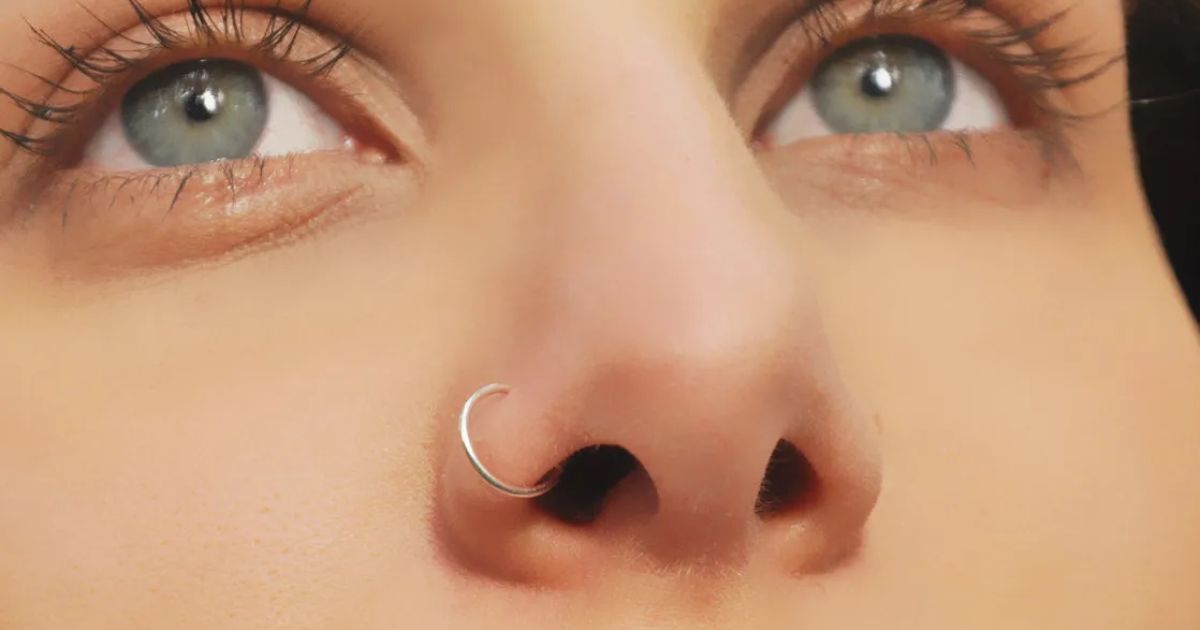Getting your nose pierced can be an exciting experience, but the healing process requires care and precaution, including being mindful of your diet. Certain foods can irritate and prolong healing, while others provide benefits. Read on to learn which foods to embrace and avoid after a nose piercing.
Understanding Nose Piercing Healing
Nose piercings are prone to swelling, redness, bleeding, and tenderness during the healing process, which can take up to 6 months for full completion. The piercing is an open wound vulnerable to infection initially. Proper aftercare and eating habits reduce irritation and facilitate healthier healing.
During the first 3 months, the tissue will be reforming and the piercing establishing itself. Avoiding irritants and potential contaminants is crucial. From months 3 to 6, the piercing fully matures and stabilizes. A balanced, nourishing diet supports this. Being mindful about food choices throughout the healing journey can prevent setbacks.
Importance of Diet in the Healing Process
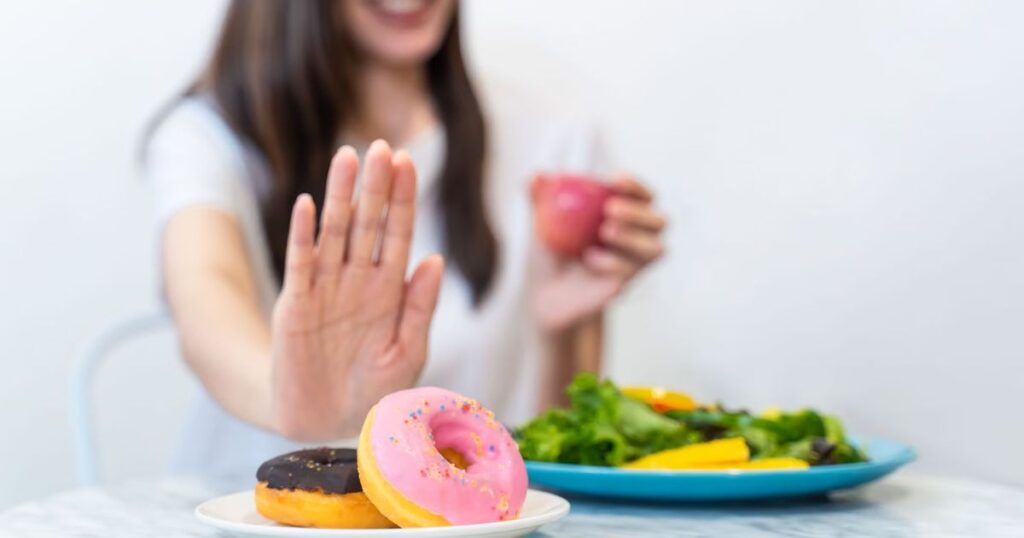
What you eat can impact the healing of your nose piercing significantly. The right nutrients provide the resources for your cells to regenerate whole foods that cause inflammation prolong swelling, discharge, and tenderness.
A healthy diet supports quicker healing by:
- Improving circulation to bring oxygen and immune cells to the piercing site
- Providing nutrients like vitamin C, zinc, and protein for tissue repair
- Reducing inflammation that interferes with the healing process
- Keeping you well-hydrated to lubricate piercing and facilitate discharge
- Avoiding contaminants that introduce bacteria and hinder healing
Making smart dietary choices after getting your nose pierced gives your body what it needs to heal efficiently while avoiding unnecessary irritation and infection risk.
Avoid These Foods After Getting Your Nose Pierced
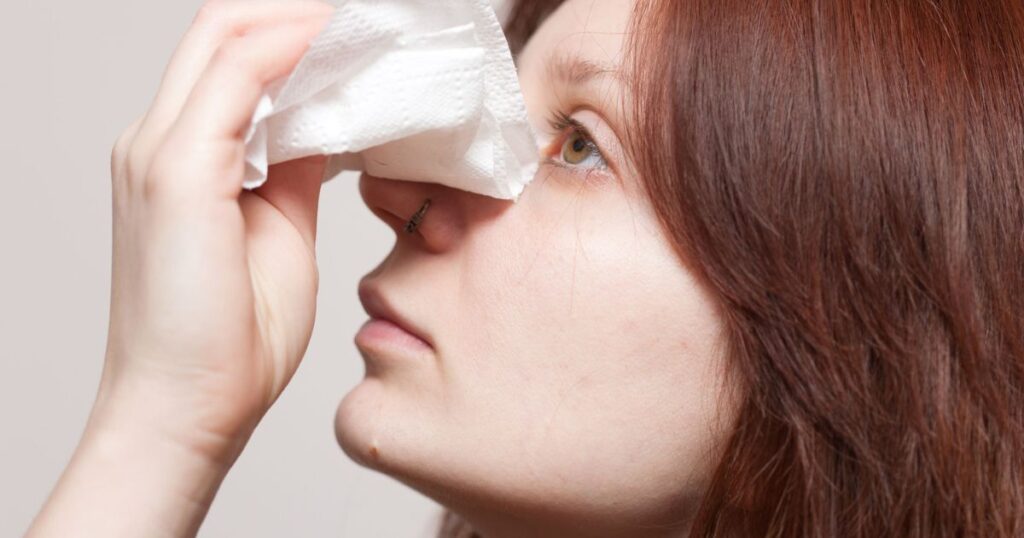
Certain foods are common irritants or pose contamination risks for new nose piercings. Steer clear of these during the healing period:
Spicy Foods
Foods with a lot of heat or chili pepper can aggravate and inflame a new nose piercing, leading to throbbing discomfort, swelling, oozing, and delayed healing. Opt for milder flavors until fully healed.
Salty Foods
High sodium foods like chips, cold cuts, and soy sauce promote fluid retention and swelling around the piercing site. Limit salty snacks and seasonings temporarily.
Sugary Foods
Sugary sweets and sodas can harbor bacteria and stick to jewelry, introducing infection. They also create an environment for yeast overgrowth. Consume natural sugars in moderation from fruits and avoid concentrated sources.
Alcohol
Alcohol thins the blood, causing increased bleeding and fluid buildup around the piercing. It also lowers immunity, leaving you prone to infection. Avoid alcohol while the piercing is healing.
Caffeine
Like alcohol, caffeine thins the blood and can exacerbate bleeding and swelling after a new nose piercing. It also dehydrates the body, which slows healing. Limit coffee, tea, soda, and energy drinks.
Highly Processed Foods
Packaged snacks, frozen meals, fast food, and lunch meats contain chemical additives, preservatives, high sodium, and contaminants that can irritate or infect the piercing site. Eat fresh, unprocessed foods instead.
Red Meat
While red meat provides iron and protein for healing, it also tends to be inflammatory. The fatty acids and difficult digestion can make swelling and discomfort persist longer. Eat leaner proteins until healed.
Dairy Products
Dairy is mucus-producing and can exacerbate discharge from the piercing. It also harbors bacteria. Until the piercing matures, limit milk, cheese, cream, and yogurt.
High-Fat Foods
Fried foods, creamy sauces, greasy meats, and fatty snacks cause inflammation. They congest nearby lymph nodes, trap debris near the piercing, and hinder drainage and discharge. Choose healthier fats from nuts, seeds, avocado, and olive oil instead.
Citrus Fruits
The acidic juices from citrus fruits like oranges, lemons, limes, and grapefruit can get into the piercing hole and cause a stinging, burning sensation. Avoid direct contact and drips.
Peanuts and Peanut Butter
For some, peanuts can prompt allergic-type reactions including swelling of nose tissue, which can compromise the piercing. Err on the safe side by avoiding peanuts until healed.
Garlic
Garlic has anticoagulant properties that can lead to bleeding or seeping from the piercing. Hold off on garlic-heavy foods like hummus, tzatziki, and garlic bread until your piercing has stabilized.
Beneficial Foods for Improved Healing
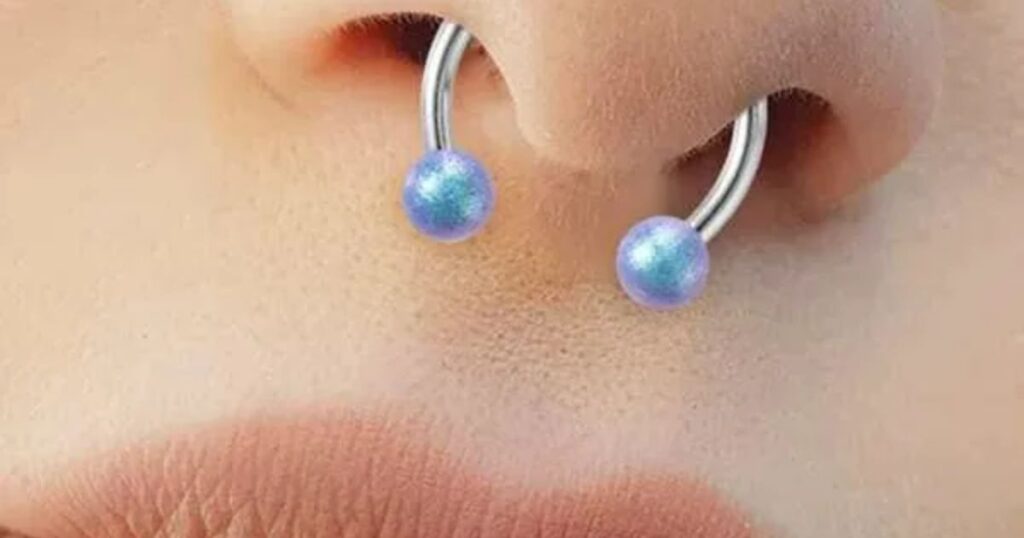
While some foods should be reduced or avoided, incorporating the right foods promotes faster, healthier healing by providing nutrients and reducing irritants. Helpful options include:
- Fruits and Vegetables
Fruits and veggies provide vitamin C, zinc, fluids, and antioxidants for healing without inflammation risks. Focus on leafy greens, berries, melons, stone fruits, mushrooms, tomatoes, peppers, and squash.
- Protein-rich Foods
Protein aids tissue regeneration and immunity. Choose options like organic poultry, eggs, wild fish, legumes, nuts, seeds, and quinoa.
- Whole Grains
Complex carbohydrates like brown rice, oats, millet, and quinoa reduce inflammation and provide steady energy for recovery.
- Healthy Fats
Monounsaturated fats from olive oil, avocado, salmon, and nuts offer anti-inflammatory benefits without congesting lymph flow.
- Hydrating Foods
Water, herbal tea, broth-based soups, cucumbers, berries, melons, and aloe vera juice keep you hydrated for optimal healing.
Additional Aftercare Tips for Nose Piercing
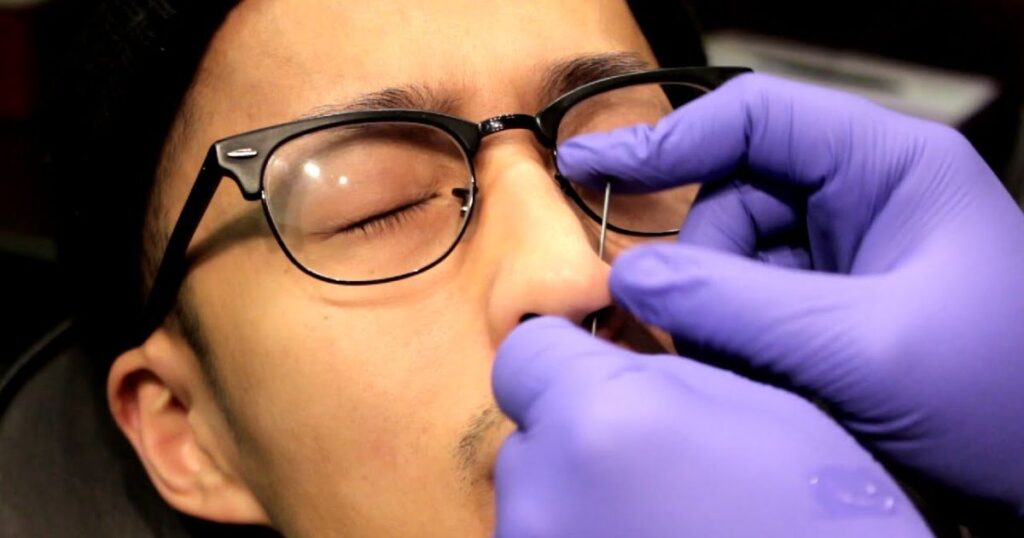
Your diet is just one aspect of proper nose piercing aftercare. Be sure to also:
- Wash hands before touching the piercing
- Use a sterile saline spray 2-3 times daily
- Avoid ointments, creams, makeup, and touching the area
- Watch for signs of infection like increasing pain, heat, swelling, discharge
- Keep hair, clothing, and towels away from the piercing
- Change pillow cases frequently to avoid transfer of bacteria
- Protect the piercing from impact, friction, or snagging
- Avoid swimming, hot tubs, sweaty exercise temporarily
When to Consult a Professional
If you experience increasing discomfort, swelling, bleeding, discoloration, fever, or foul-smelling discharge, contact your piercing specialist promptly. Signs of infection or rejection require professional intervention.
FAQ’s
What irritates nose piercings?
Spicy, salty, sugary, and acidic foods can irritate nose piercings, as can hair products, makeup, and unclean hands touching the piercing.
What not to use on a nose piercing?
Avoid using ointments, creams, makeup, towels, or unclean hands on or near the nose piercing during healing to prevent infection.
How do you wash your face with a nose piercing?
Gently cleanse around the nose piercing using fingertips and mild, fragrance-free soap, rinsing thoroughly. Avoid submerging the piercing or using exfoliants.
How long until nose piercing stops hurting?
A nose piercing typically stops hurting within 1-2 weeks but may remain sensitive for the entire healing period of 3-6 months as tissue reforms around the jewelry.
Is it okay to drink alcohol a few days after getting a nose piercing?
No, alcohol should be avoided for at least the first 3-6 months while a nose piercing is healing, as it thins the blood and increases chances of bleeding, swelling, and infection.
Can I eat spicy food if it doesn’t cause swelling or discomfort around my piercing?
It’s best to avoid spicy foods altogether while a nose piercing is healing, as they carry risks of irritation, inflammation and compromised healing even without obvious swelling.
Why does the type of jewelry matter for the healing process?
Jewelry material impacts healing. Well-fitted surgical steel, titanium, or 14+ karat gold are safest, versus plastic or nickel jewelry that can harbor bacteria and irritate the piercing.
Conclusion
What you eat after getting your nose pierced can significantly impact the healing process. While inflammation-triggering and contaminated foods should be avoided, a balanced diet with plenty of vitamins, minerals, protein and healthy fats provides the nutrients your body needs to recover quickly. With proper aftercare and smart food choices that reduce irritants, you can achieve optimal nostril piercing healing results.
